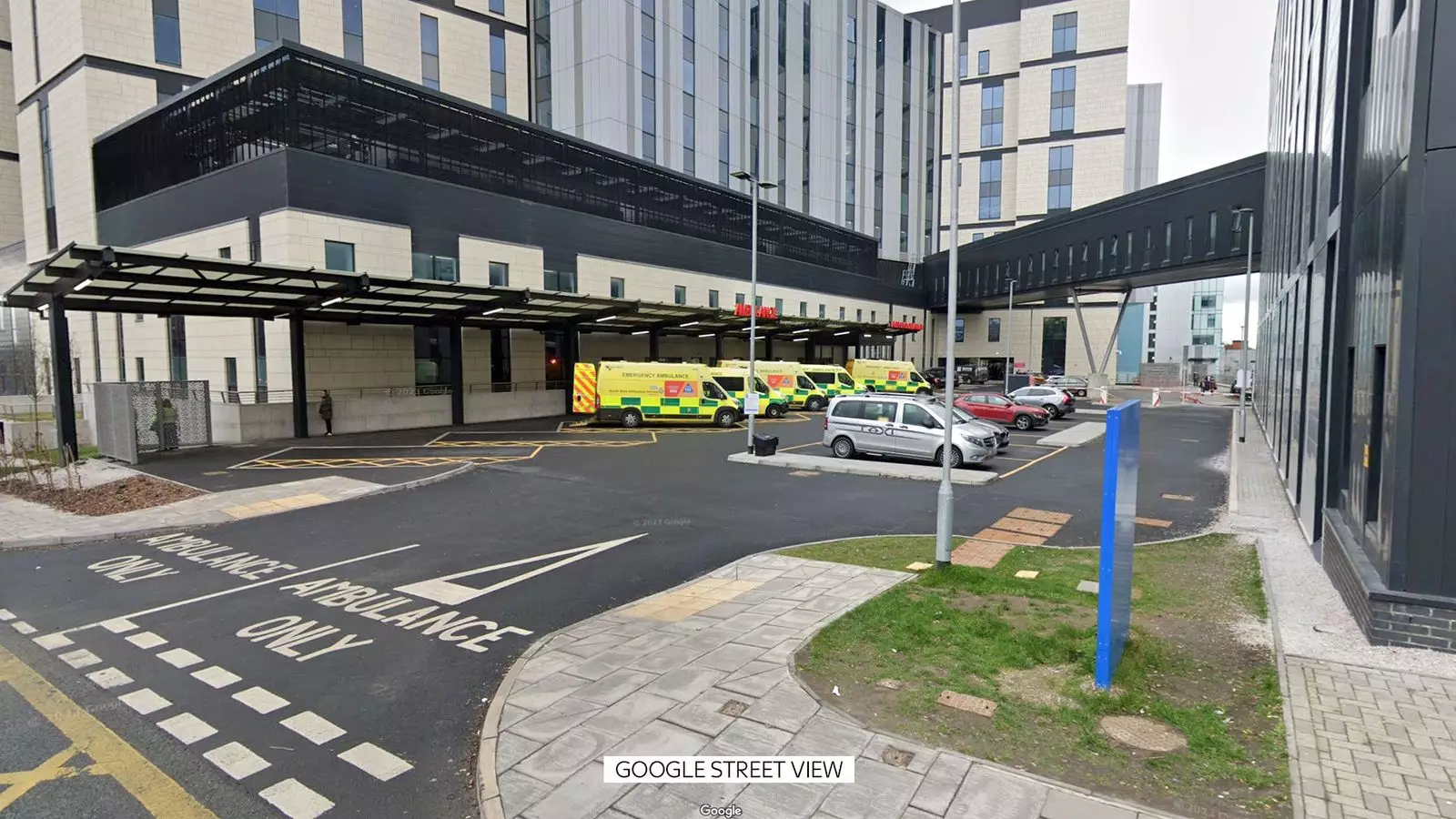The Royal Liverpool University Hospital has recently recognized a critical incident, which reflects an alarming situation emerging in healthcare facilities across the UK. This declaration stems from “exceptionally high” demand in the Accident and Emergency (A&E) department, primarily exacerbated by a surge in patients exhibiting flu-like and respiratory symptoms. According to recent data from the NHS, flu cases in hospitals have skyrocketed, with figures indicating a fourfold increase in the past month alone. This trend has prompted institutions to grapple with an unprecedented influx of patients, making it pivotal to evaluate the underlying factors contributing to this crisis.
As winter progresses, the combination of seasonal ailments, including a notable uptick in flu cases, has placed significant strain on the healthcare system. The phenomenon of a “quad-demic,” which is characterized by the simultaneous circulation of flu, norovirus, COVID-19, and RSV, poses a severe challenge to healthcare resources. Hospitals like Royal Liverpool have quickly become overwhelmed, as evident from the high patient volumes seeking immediate care. Furthermore, the declaration of a critical incident serves as a clarion call for increased awareness regarding the local healthcare landscape, emphasizing the urgency for preventative measures and efficient resource management.
In light of these challenges, a spokesperson from the Royal Liverpool University Hospital assured the public that comprehensive plans are in effect to address the crisis. One notable strategy includes collaboration with partner organizations to facilitate the safe and timely discharge of patients who are medically fit. However, while these measures are essential, the reality remains that resource limitations may lead to unavoidable delays for many patients. The hospital is prioritizing the care of the most severely ill, which could result in non-emergency cases facing longer wait times.
The situation begs the question: does the existing healthcare framework provide adequate support during these peak periods? The plea for patients with non-critical cases to seek alternatives such as visiting a GP, pharmacy, or utilizing the 111 advice service indicates a growing need for an adaptable healthcare approach.
The critical incident declaration at Royal Liverpool mirrors similar challenges faced by other healthcare institutions, such as the NHS Cornwall and Isles of Scilly Integrated Care Board, which has also reported soaring inpatient levels. When hospitals are compelled to take extraordinary measures, it reveals systemic vulnerabilities that must be addressed to enhance patient care and operational efficiency.
To effectively counteract these ongoing crises, a multi-faceted approach is necessary. Increased public awareness about flu vaccinations, available healthcare pathways for non-emergent cases, and a strategic reassessment of staffing and resource allocation in hospitals can lay the groundwork for durable solutions. Only with collaborative efforts and innovative strategies can hospitals manage the complex interplay of seasonal illnesses and ensure the well-being of their communities during these challenging times.
While the Royal Liverpool University Hospital is taking relevant steps to address its current critical situation, a broader perspective on healthcare resilience is essential. Addressing these challenges head-on will require not only immediate action but also long-term strategies that fortify the framework of healthcare services against future demand surges.

Leave a Reply